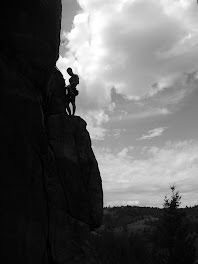I just finished reading We-Think by Charles Leadbeater. In order to ensure that I would not lose the salient points from this book, as they apply to learning I decided to blog about this book ..not so much as a review but to identify the salients points.
We-Think provided the following that I took away from my read of this book:
A better understanding of how the web connects us
Collaboration: thinking, sharing, working together
How this leads to innovation and creativity in groups.
Provides an avenue for freedom, creativity, equality, collaboration, and networking
ie) wikis
Concerns: how these are governed, how teams form, the diversity associated with the teams
Proliferation of user created web content blogs, websites, wikis, social media
Social networking sites work when they foster a spirit of self-governance (page 35)
Provide some order to the chaos of information and a way of managing the information.
History of the Internet----based upon the roots of collaboration that came from the culture of hippy and academics C
Changes in how information is owned and paid for and what is paid for
Open source---radically changes how and what is paid for
Those who create the content provide it as a gift for others to collaborate with them, to improve and create conversation
Diverse ways of thinking are essential for innovation
Diverse values how to resolve differences
Keep them from being overwhelming
Creation of a self-governing community
Thrives on different talents of different people
Provides a spectrum for measuring the level of "we-think"....No We-think to full we-think...The delivery of organized combination of contributions from group of diverse people with differing points of view (Linux, Wikipedia)
The web's best known self-governing communities do seem to bear out, (the need for) responsible self-governance--in which decision making is relatively transparent and power is held to account --- with the outcome that citizens become more engaged and the political process more legitimate and engaged.
Steampunk Adventures back from a real life interruption!
-
Hello everyone, I can’t believe that I have not posted anything here since
June of 2011! So much has happened in the past several months..real life
has ce...
14 years ago


